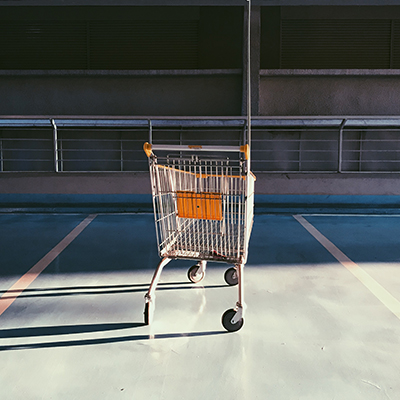This article was first published on March 17, 2020.
While many cities in Asia and portions of Europe have been locked-down, across much of the United States it’s business-as-usual in retail and stores remain busy (in many cases busier than usual). The difference may mainly be one of timing. The Centers for Disease Control and Prevention (CDC) has encouraged Americans to prepare for the prospect of “community spread” of the novel coronavirus that causes COVID-19 in the US. Expanded testing has revealed that there are now cases in most states. Since the virus appears to be highly contagious, the situation has the potential to change very quickly.
The virus should be of particular concern for retailers, who will find themselves on the “front lines,” facing a worried public every day. More than many other businesses, they play a major role in communities. Retailers provide the essential means for daily life (food, medicines, and household essentials) and are huge employers, with workforces depending on them to make a living. Retail stores are also locations where people congregate, providing opportunities for the virus to spread and giving the industry a special responsibility to the community in time of epidemic. These roles mean that retailers’ preparations are crucial for society and the economy.
If an outbreak progresses in two ways, “gradually and then suddenly” retailers should take full advantage of the slower take-off phase to plan and prepare for the possibility of the following a similar course in the United States as it has elsewhere.
China was the first country impacted and may offer a preview of some of the impacts on retail we can expect here, as well. According to Pedro Yip, a partner in Oliver Wyman’s Greater China practice, “many retailers have seen brick and mortar sales decline by 60-80%,” only partially offset by a significant jump in online sales. Supply chains were disrupted and for a time, consumers in some major cities struggled to find fresh produce, toilet paper, or instant noodles. Social distancing and public health measures that in some cases included widespread restaurant closures led to a shift to in-home dining (either food delivery or prepared at home). An Oliver Wyman survey found that consumers dramatically increased their purchasing of non-perishable rice and noodles, while pulling back on fresh meat. Sales of vitamins and health supplements increased as well. While cutting back on discretionary purchases, consumers chose to buy their daily essentials online, with 56% reporting trying new platforms for online shopping and delivery during the epidemic there. What can U.S. retailers do to prepare if a similar seismic disruption is headed our way?
Weathering the storm
Fundamentally, retailers do three things: buy, move and sell. All of these will face challenges in the face of a pandemic.
Imports from hard-hit regions overseas are likely to be delayed. Already, retailers are facing delays in shipments from Chinese suppliers, and that may soon extend to shipments from European suppliers as well. Even domestic manufacturers rely on imported intermediary goods (eg plastic packaging from China), creating potential production bottlenecks. Products in particularly high demand during the crisis are likely to be placed on allocation as manufacturers struggle to keep up with demand. Retailers should identify at-risk assortment and plan ahead for substitutes and “Plan B” planograms. Purchase limits may be necessary for products concerned consumers are stocking-up on (like hand sanitizer) to discourage hoarding and ensure sufficient stocks are available for those in immediate need. The sudden shift in behavior will strain forecasting and inventory management. Past experience with crises like snowstorms and hurricanes is likely to be an unreliable guide.
Retailers and their suppliers were already dealing with a trucker shortage and rising costs. Absenteeism on the roads and in warehouses, coupled with forecasting challenges, will exacerbate those challenges. To mitigate, retailers should coordinate and communicate closely with suppliers to overcome constraints and bottlenecks.
As concern about public spaces grows, and if Americans are asked to stay home, they will need to find alternative ways of fulfilling their needs than going to a physical store. Ecommerce is likely to experience a surge during this period, as it has in China. As consumers shift their purchases online, retailers should make sure that they are well-positioned to recover at least a portion of their lost brick and mortar volumes online. Make sure consumers are aware of your online or click-and-collect offer, encourage its use, and ensure you have sufficient capacity to handle a sudden surge in online orders. Absenteeism (especially if school closures are implemented) will create store labor and operations challenges which should be anticipated and planned for, starting today.
Health and Safety
The health of staff and customers should be paramount, and retailers should prepare measures that may be necessary well before they are needed. It’s often said that retail is detail – and in this situation, retailers paying attention to the details of good hygiene can help to slow the spread of the new virus. Additional hand sanitizer stations can be added at entrances and throughout a store, and shopping cart handles should be regularly wiped down with disinfectant. Staff should be told to wash their hands frequently, using soap and water or alcohol-based hand sanitizers, and avoid touching their eyes, nose, and mouth. Retailers should ensure paper towels are available in bathrooms so that customers and staff do not need to touch door handles – air dryers and door handles are not a hygienic combination – and that bathroom door handles are frequently sanitized. Posting the schedule can help to reassure customers. Coughs and sneezes should be covered with a tissue or an elbow, not a hand. Handshakes can be replaced by fist bumps or elbow taps (or even better, a wave). Salad bars and self-serve deli counters may need to be replaced with pre-packaged offerings, and in-store sampling may need to be suspended. Staff should – starting today – be told to stay home if they are sick and to encourage their families to do the same. Head office staff should not travel unnecessarily and work-from-home should be encouraged wherever possible.
Looking ahead, start planning now for what could trigger taking further actions to protect store associates and consumers, and what those actions could include. Industry groups like Oliver Wyman’s strategic partners at FMI, the food industry association, can be an important resource for guidance for smaller retailers with less developed enterprise risk management and business resiliency planning.
It will be easier to take such additional steps in cooperation with other local businesses, including rival retailers. No retailer will want to be the first in town to take additional measures, but retailers may be able to coordinate action together in an impacted area. Store managers could be encouraged to work with local community organizations and volunteers to ensure at-risk groups, including the elderly, have their needs met through the crisis. Such collective action will reinforce the sense that retailers are thinking foremost about the wellbeing of the community, which can be reinforced by helping to disseminate reliable information from the relevant authorities to the community.
Looking beyond
The pandemic will have economic reverberations that extend well after the number of cases has peaked. It’s conceivable that the financial disruption and direct impact on transportation, service and retail sectors brings this economic expansion (the longest in U.S. history) to a close by triggering a recession. Retail businesses that until just recently were in growth mode may need to quickly retrench. Recessions can be make-or-break moments for retailers and consumer products companies, as consumers trade-down and cut back on discretionary spending.
Every executive needs to start asking: Is my business ready? Assess your level of exposure and risk profile, wargame what adjustments to strategy may be necessary and determine what actions you can start taking now to recession-proof your business. Those businesses that take proactive actions today are more likely to emerge healthy on the other side, well-poised for growth in the expansion to come.



